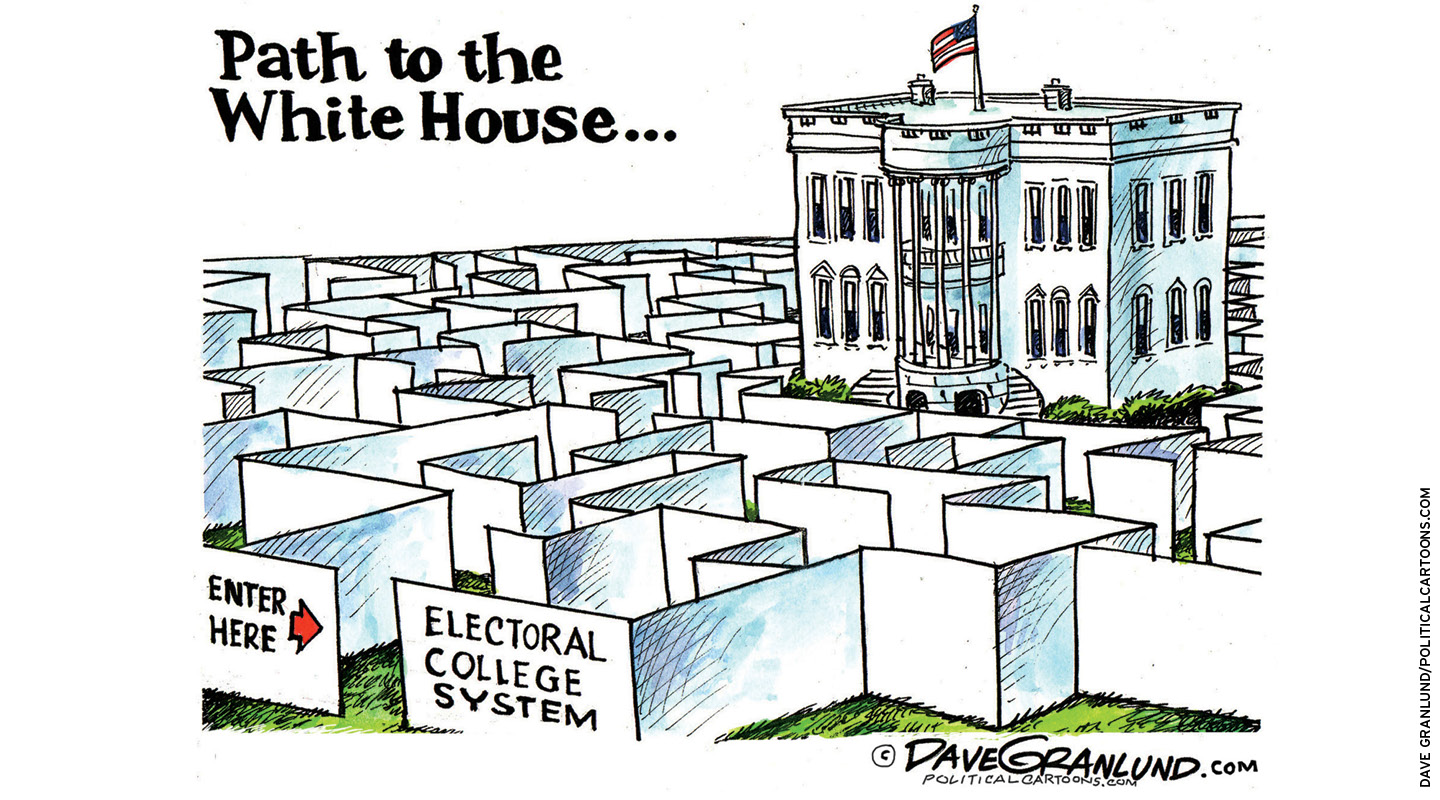One of the shortcomings of the Electoral College is that a candidate can win the presidency without winning the popular vote. In fact, 5 of our 45 presidents have come into office without winning the most votes nationwide. This happened in 1824,* 1876, 1888, 2000, and 2016.
Near-misses have also been common. In 2004, a shift of 60,000 votes in Ohio would have given John Kerry a majority of the electoral votes and therefore the White House, despite George W. Bush’s nationwide lead of 3 million votes.
An even more important problem with the current system is that voters in two-thirds of the states are effectively disenfranchised because they don’t live in battleground states. Because most states award electoral votes on a winner-take-all basis, presidential candidates have no reason to campaign in states in which they are comfortably ahead or hopelessly behind. In 2016, 94 percent of general-election campaign visits were concentrated in just 12 closely divided states, and two-thirds of the campaigning was in just six states.

